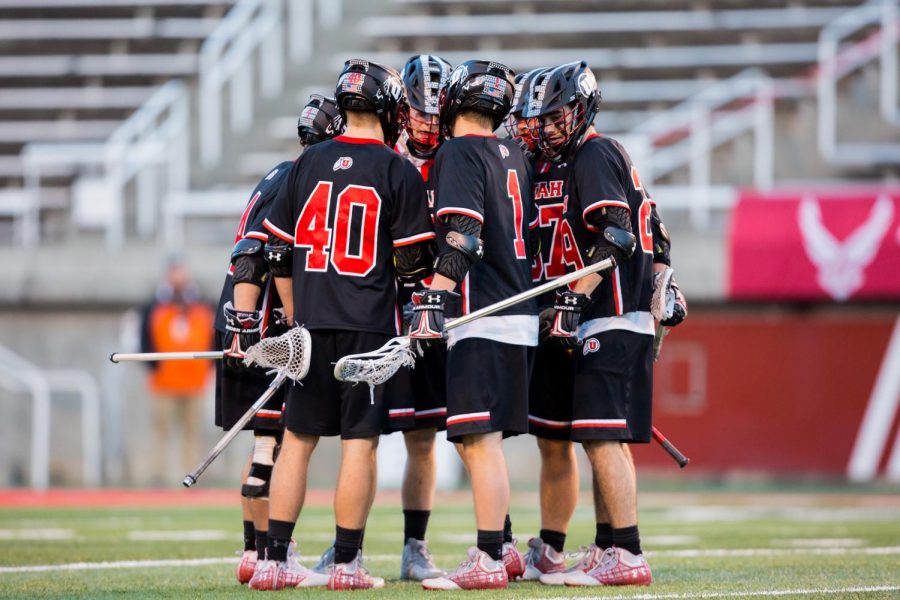ASUU and Social Media Toxicity
Social media pulled up on the phone on Wednesday, March 14, 2018. (Photo by Curtis Lin)
September 24, 2019
On April 18, 2019, a guest opinion piece was published on The Daily Utah Chronicle’s website holding ASUU member Greg Boisvert accountable for his use of offensive language in a social media post aimed towards another member in a leadership position. This incident, while isolated, was met with backlash from the university community, and led to Boisvert losing professional credibility. What’s more surprising is the cause behind all of this: a meme posted in a Facebook group, UofU Edgy Memes for Salty Skis.
Social media, while usually a place to share and enjoy updates from friends and family, can also create an environment of stress and toxicity. And while this remains true for anyone, it’s especially true for members of the university’s student government.
According to the #StatusOfMind survey conducted by the United Kingdom’s Royal Society for Public Health, all forms of social media have a negative impact on sleep quality, body image and, in many cases, cause or aid in depression and anxiety — rates of both have increased 70% in the past 25 years. Additionally, these services tend to promote bullying and a fear of missing out, leading to a “compare and despair attitude.”
Members of ASUU expressed a feeling of entrapment when trying to post on social media. Lexi Hoggan, a student who acts as the director of finance, spoke out on the paradoxical standards of social media, saying, “I don’t feel restrained in what I post, but sometimes I feel like they put people in ASUU into a box. It almost makes me feel like sometimes I should be embarrassed. Sometimes we’re under such a harsh light, anything we say could be misconstrued.”
Posting on social media is oftentimes a liberating experience, a chance to express oneself and better build a community around them. Yet, for members of ASUU, the constant need for an air of professionalism and effortless success leads to struggles with frustration and anxiety. Don Ly, director of Campus Relations and a junior at the U, sympathizes with Hoggan for similar reasons.
“If it’s school related, I want people to see [what I post] to know that I’m actually doing something. I don’t like to post too much of my personal life because of that,” Ly said.
Planning and executing an event for ASUU can be mentally and physically taxing for its volunteers, who lament how other students only see the finished product on social media without knowing about the effort put into it. Hoggan in particular was able to recall a recent fundraiser lasting until 2 a.m., a problematic event due to her need to wake up only two and a half hours later to be back on campus.
“I think the position is so stressful,” Hoggan said. “Obviously it’s rewarding, but people don’t see all the effort that goes into it.”
Publicly, there are no specific standards set in place for members of ASUU, but even without a legitimate code of conduct for posts on social media, the trend of members not posting about their personal life continues. Hoggan explains the reason why: a constant fear of miscommunication.
“I don’t have Instagram or Twitter because I’ve seen a bunch of bad things from posting too much. I don’t want to put myself in that position,” Hoggan said. “When you’re in a leadership position, you don’t want to post too much because it could be taken the wrong way.”
Because members in ASUU have made this mistake before — Boisvert and his meme — other students worry that their posts could be taken out of context or misinterpreted altogether, leading to a permanent smear on their professional record. Instead, they opt to post only about positive events on campus relating to ASUU. Ly mentioned how even this can end up being stressful, as it again fails to show the amount of effort each event and fundraiser takes. “It’s a lot of background work, so people don’t always think you’re doing something, but in reality, you’re doing so much more. Not everyone knows how ASUU functions.”
While social media has helped boost public engagement in a number of ways for ASUU, it can end up restricting the students involved with the student government from expressing themselves as freely or personally as they would like. “It’s definitely harmful for me,” Hoggan said. “I withhold multiple leadership positions, and if I was constantly posting about those, people would think it’s perfect. But it’s not; it’s so many ups and downs.”
Ly continued on these thoughts, saying, “I would say it’s negative too, but [more so] because people can hate you for certain things. What happened to other individuals, where they post something and get attacked for it … I would see that as negative.”
b.bernstein@dailyutahchronicle.com
*Disclaimer: While not a member of The Chronicle’s writing staff, Lexi Hoggan is a member of University of Utah Student Media. She serves as co-director of View from the U, a video production team with whom The Chronicle does not collaborate.












